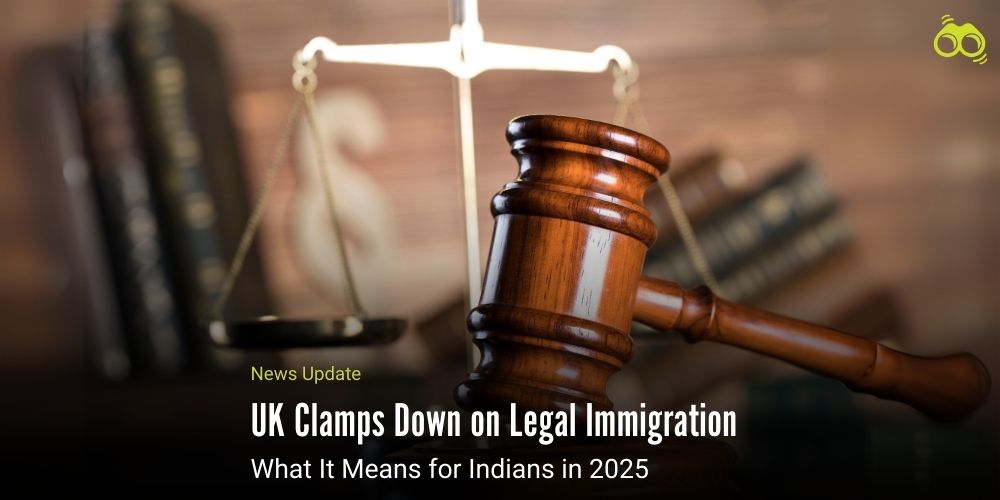Starmer Government Ends ‘Open Borders’ Era with Sweeping Immigration Crackdown
UK Government Overhauls Visa System, Curtails Access for Foreign Nationals
The UK government has announced significant immigration reforms that are expected to have a considerable impact on Indian nationals. On 12 May, Prime Minister Keir Starmer introduced the immigration white paper, marking a shift away from Britain's previous open-border policies. He cautioned that unchecked immigration could lead to the country becoming “an island of strangers” and described its effects as "incalculable."
The white paper outlines concerns over the rise in low-skilled migration from non-EU countries and the increasing number of international students enrolling in lower-ranked universities. It underscores a strategic shift towards prioritising domestic workforce training over overseas recruitment. Under the new regulations, only individuals with a university degree will qualify for skilled worker visas—previously, the threshold was A-level equivalent. The graduate visa will be reduced from 24 to 18 months. The health and care worker visa, commonly used by foreign nationals in the care sector, will be abolished. Other changes include extending the residency requirement for settlement or citizenship from five to ten years and introducing stricter English language requirements across all visa categories.
The UK government has introduced further immigration reforms, including a 32% increase in the Immigration Skills Charge and higher salary thresholds for skilled worker visas, especially for those bringing dependents. The white paper noted that Indian nationals received the most skilled worker and health and care worker visas last year, and the second-highest number of study visas. However, the changes will mainly impact future applicants, not current visa holders.
Authorities clarified that individuals already on skilled worker visas will not be affected by the new rules unless they switch routes. Those on health and care worker visas can extend or switch in-country only until 2028. The route’s planned closure was attributed to reported exploitation and abuse by care sector employers. The white paper raised concerns over the misuse of student visas, citing cases where individuals entered the UK without intending to complete their courses and a rise in asylum claims from students post-study. It also noted that many graduates staying in the UK were not securing graduate-level jobs, undermining the visa’s purpose. The UK aims to shift focus to high-talent migration routes like the Global Talent Visa and High Potential Individual route to attract qualified professionals aligned with national priorities.
While the UK government's immigration reforms aim to address concerns over low-skilled migration and the misuse of student visas, they may have significant implications for Indian nationals, particularly students and professionals. The impact of these changes will depend on their implementation and the responses of affected individuals and communities.
Editor’s Note
The United Kingdom's sweeping immigration reforms signal a pivotal policy shift with far-reaching implications, particularly for Indian nationals. As the government emphasises skilled migration aligned with national priorities, these measures raise critical questions about equity, workforce needs, and the future of international education in the UK. While the intention to curb abuse and prioritise domestic training is valid, the abrupt tightening of visa rules may disrupt long-standing academic and professional ties with countries like India.
These changes come at a time when the UK is heavily reliant on international students and migrant professionals, especially in sectors like healthcare. The restriction on post-study work opportunities and the abolition of the health and care worker visa could potentially create workforce shortages and deter future applicants.
Skoobuzz highlights that the government’s challenge will be to strike a balance between safeguarding national interests and maintaining its commitment to being an open, globally connected society.














0 Comments (Please Login To Continue)